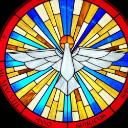Yahoo Answers is shutting down on May 4th, 2021 (Eastern Time) and beginning April 20th, 2021 (Eastern Time) the Yahoo Answers website will be in read-only mode. There will be no changes to other Yahoo properties or services, or your Yahoo account. You can find more information about the Yahoo Answers shutdown and how to download your data on this help page.
Trending News
The Harper Collins Encyclopedia of Catholicism" Today scholars generally agree that there is no doctrine of the Trinity in either OT or NT"?
Complete quote: "Today however, scholars generally agree that there is no doctrine of the Trinity as such in either the Old or New Testaments...It would go far beyond the intention and thought forms of the OT to suppose that a late 4th or 13th century Christian doctrine can be found there ...Likewise, the NT doesn't contain an explicit doctrine of the Trinity" Richard McBrien, general editor, 1995, "God", pp. 564-566. Any answers, agree...disagree?
Anonymous. I'd give you BA, except your system of answering doesn't allow me to?!
8 Answers
- BJLv 72 years agoFavorite Answer
The New Catholic Encyclopedia says: The doctrine of the Holy Trinity is not taught in the Old Testament.
The Blessed Trinity says: The dogma of the Blessed Trinity is a mystery It cannot be proved by reason . It cannot even be proved to be possible.
The impression could arise that the Trinitarian dogma is in the last analysis a late 4th-century invention.
In a sense, this is true. The formulation one God in three Persons’ was not solidly established, certainly not fully assimilated into Christian life and its profession of faith, prior to the end of the 4th century. New Catholic
Encyclopedia
If they say the trinity is not in the Bible, then why do they along with the other christian religions teach it.
- Bobby JimLv 72 years ago
Accordingly then, the Harper-Collins Encyclopedia of Catholicism is incorrect. Both Old and New Testaments clearly describe a Deity which is Triune in nature.
- ?Lv 72 years ago
Right. The DOCTRINE isn't in the Bible. The TRINITY IS in the New Testament:
Therefore go and make disciples of all nations, baptizing them in the name of the Father and of the Son and of the Holy Spirit.
Matthew 28:19
Source(s): Greek Orthodox Christian - How do you think about the answers? You can sign in to vote the answer.
- Anonymous2 years ago
Then they misuse the word doctrine - The Trinity is based on Theology and/or Dogma .
There is no Theological bases or Dogma to base the Trinity on other than interpretation
- but the Trinity is pure belief based
on interpretation of theology and dogma .
Doctrine is a belief system and clearly the Trinity is a belief .
Theology is the study of interpretation and Dogma is gods nature
- Anonymous2 years ago
origin of the Trinity doctrine
The New Encyclopædia Britannica says: “Neither the word Trinity, nor the explicit doctrine as such, appears in the New Testament, nor did Jesus and his followers intend to contradict the Shema in the Old Testament: ‘Hear, O Israel: The Lord our God is one Lord’ (Deut. 6:4). . . . The doctrine developed gradually over several centuries and through many controversies. . . . By the end of the 4th century . . . the doctrine of the Trinity took substantially the form it has maintained ever since.”—(1976), Micropædia, Vol. X, p. 126.
The New Catholic Encyclopedia states: “The formulation ‘one God in three Persons’ was not solidly established, certainly not fully assimilated into Christian life and its profession of faith, prior to the end of the 4th century. But it is precisely this formulation that has first claim to the title the Trinitarian dogma. Among the Apostolic Fathers, there had been nothing even remotely approaching such a mentality or perspective.”—(1967), Vol. XIV, p. 299.
In The Encyclopedia Americana we read: “Christianity derived from Judaism and Judaism was strictly Unitarian [believing that God is one person]. The road which led from Jerusalem to Nicea was scarcely a straight one. Fourth century Trinitarianism did not reflect accurately early Christian teaching regarding the nature of God; it was, on the contrary, a deviation from this teaching.”—(1956), Vol. XXVII, p. 294L.
According to the Nouveau Dictionnaire Universel, “The Platonic trinity, itself merely a rearrangement of older trinities dating back to earlier peoples, appears to be the rational philosophic trinity of attributes that gave birth to the three hypostases or divine persons taught by the Christian churches. . . . This Greek philosopher’s [Plato, fourth century B.C.E.] conception of the divine trinity . . . can be found in all the ancient [pagan] religions.”—(Paris, 1865-1870), edited by M. Lachâtre, Vol. 2, p. 1467.
John L. McKenzie, S.J., in his Dictionary of the Bible, says: “The trinity of persons within the unity of nature is defined in terms of ‘person’ and ‘nature’ which are G[ree]k philosophical terms; actually the terms do not appear in the Bible. The trinitarian definitions arose as the result of long controversies in which these terms and others such as ‘essence’ and ‘substance’ were erroneously applied to God by some theologians.”—(New York, 1965), p. 899.
- ?Lv 62 years ago
I have, for a long time, been aware of the fact that there are people who do not believe in the trinity. But since coming here, I didn't realize it was so pervasive or that the people were SO EMPHATIC in that belief.
For a Catholic not to believe in it, it seems to me, pretty much makes Catholicism pointless, as it does for any faith that relies so heavily on the sacrifice of Jesus. Jesus' deity was what makes it matter. Otherwise, it could have been my rude neighbor on that cross, or my Armenian dry cleaner. Pointless. The fact that it was God made it sufficient.
I'm honestly not trying to argue...I'm not shy, I'll let you know. I just really don't understand how anyone who relies on Jesus' death and resurrection can also deny his deity, and why they doubt God's ability to live plurally.
Not to mention, there are many verses in the Bible that speak of it. I don't get it. Is there an aversion that I'm not aware of? Or is this just one of those doctrinal differences...a really important one, but just one, nonetheless.
***I expected the thumbs down, but I was seriously hoping for a non-hostile explanation.. or at least an intelligent refutation. .Literally don't get it for the reasons above...
- 2 years ago
There are myriad scholars and others who make similar claims and I agree with them!






